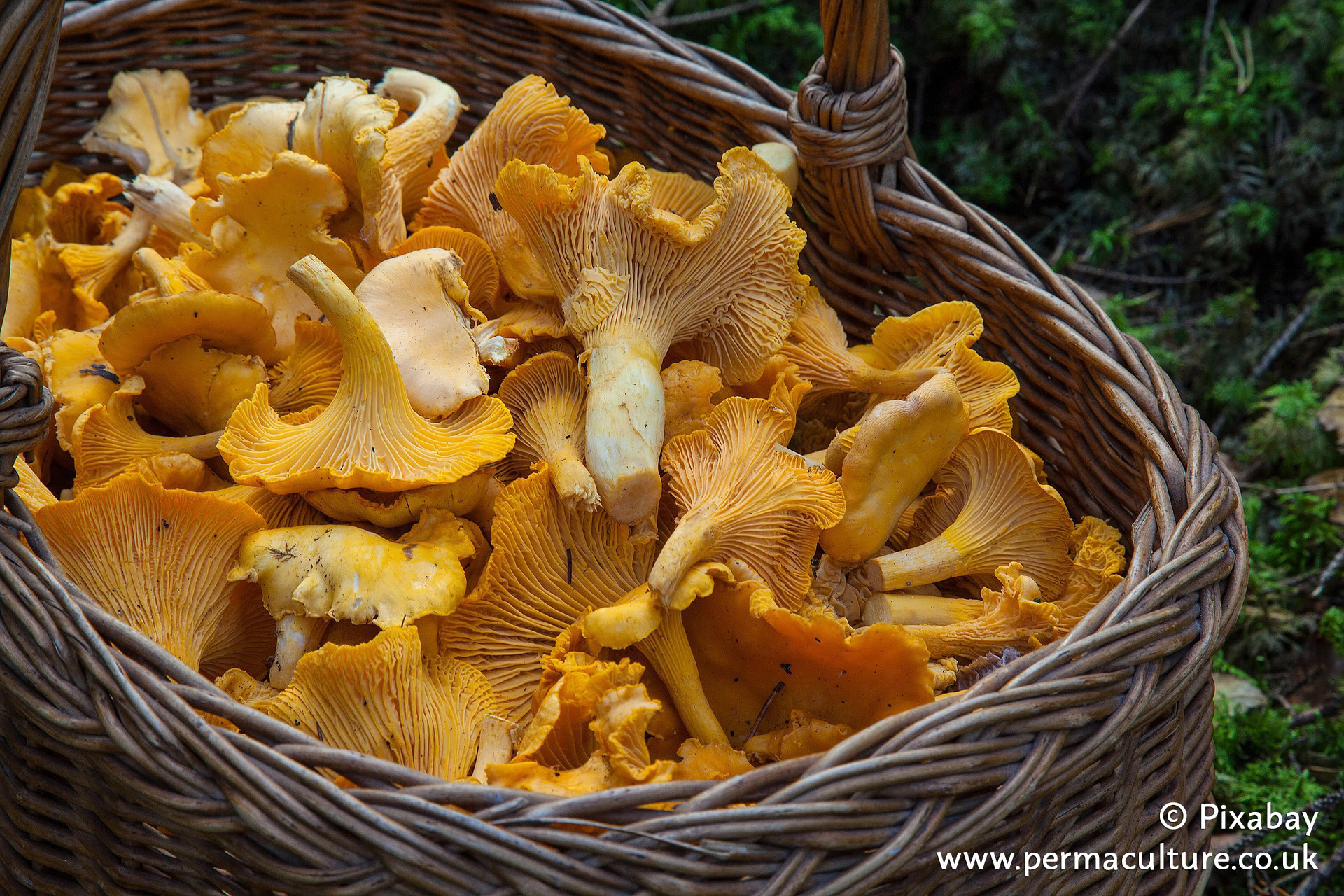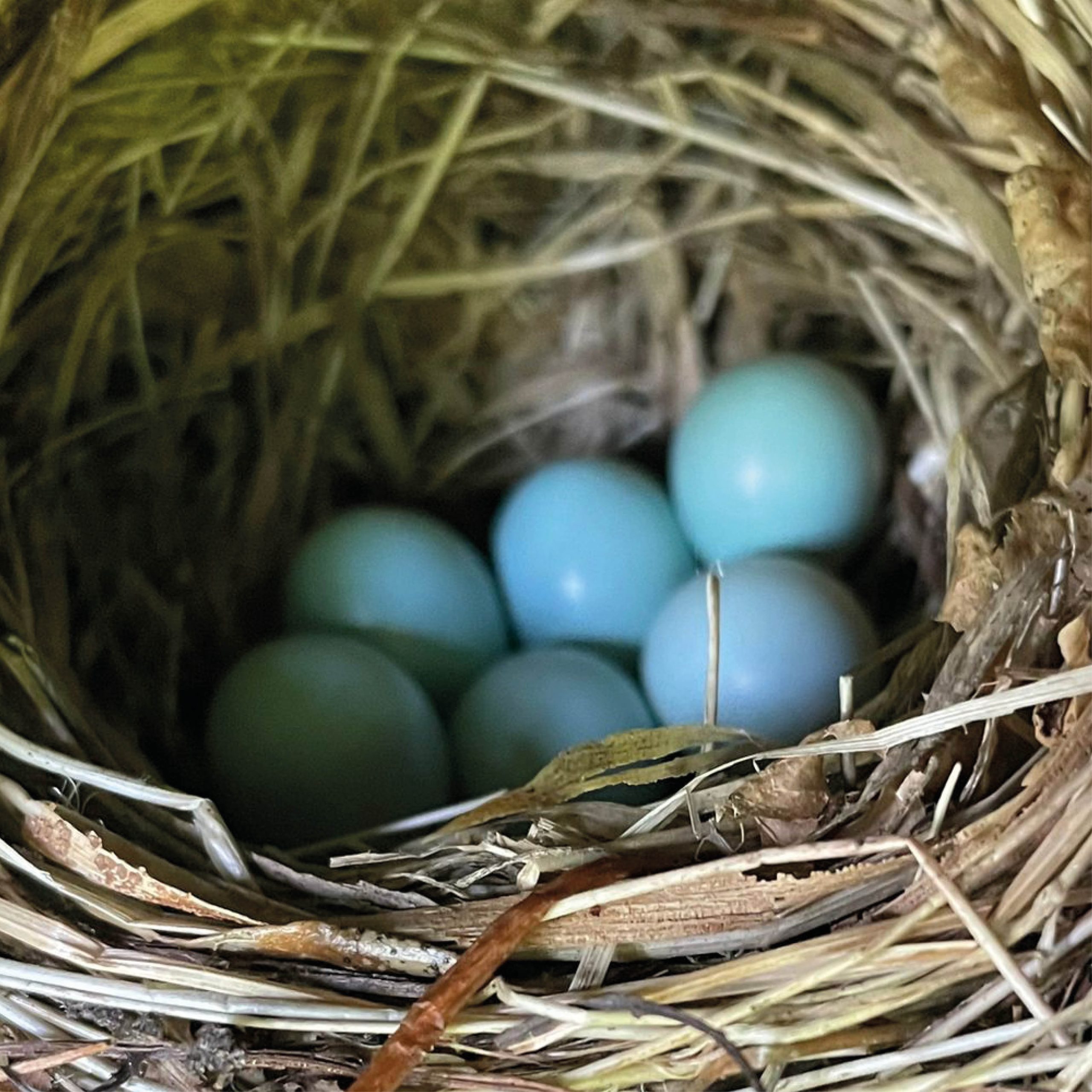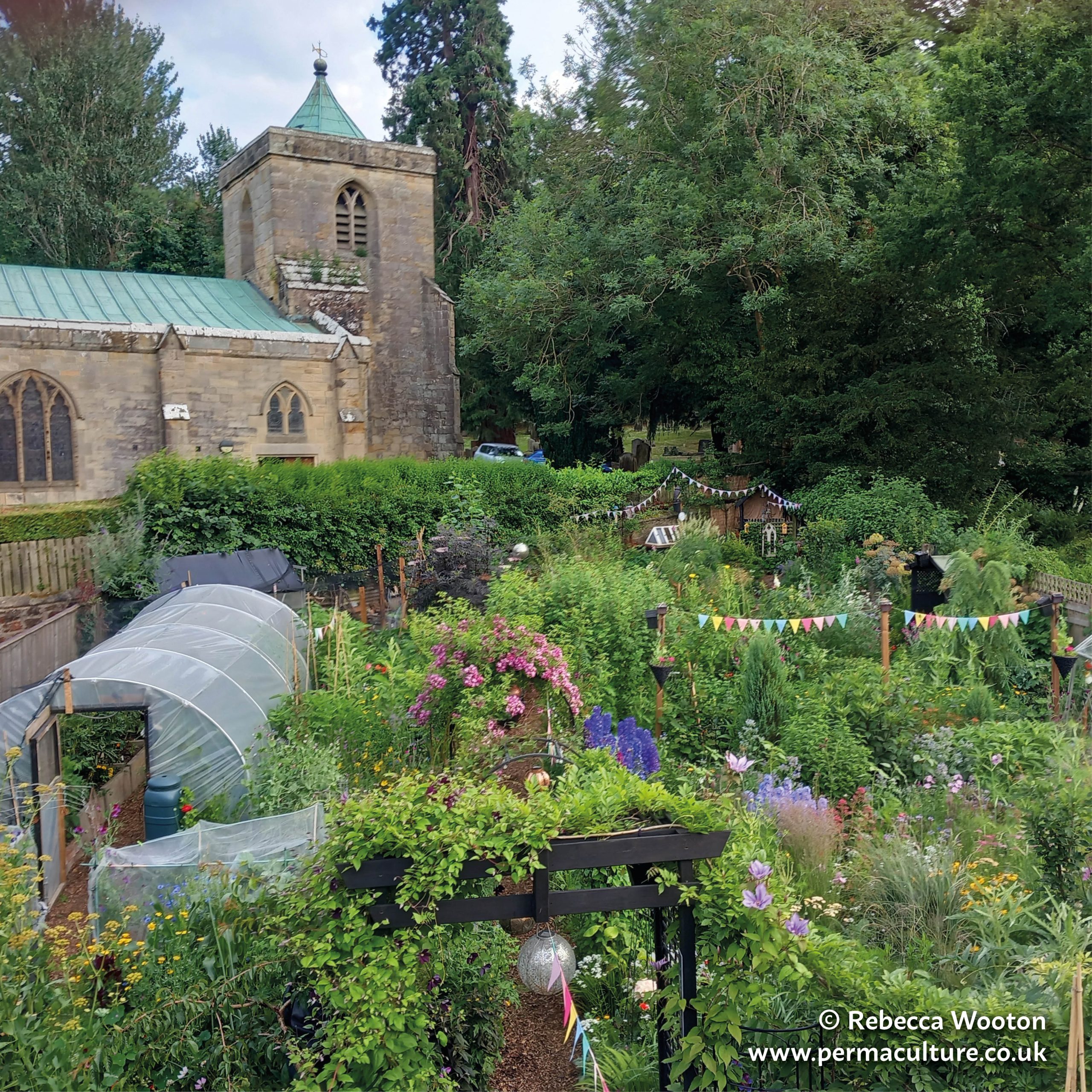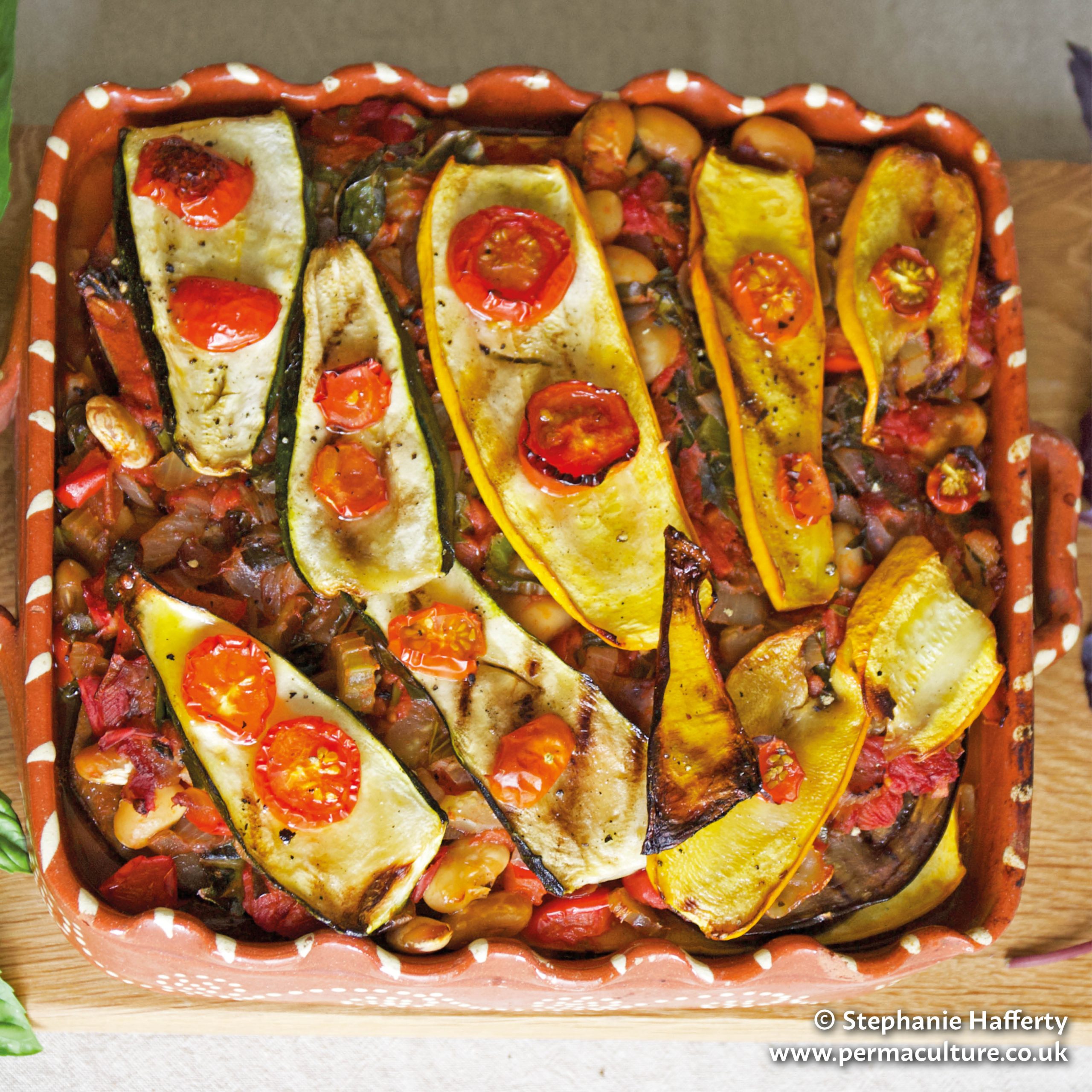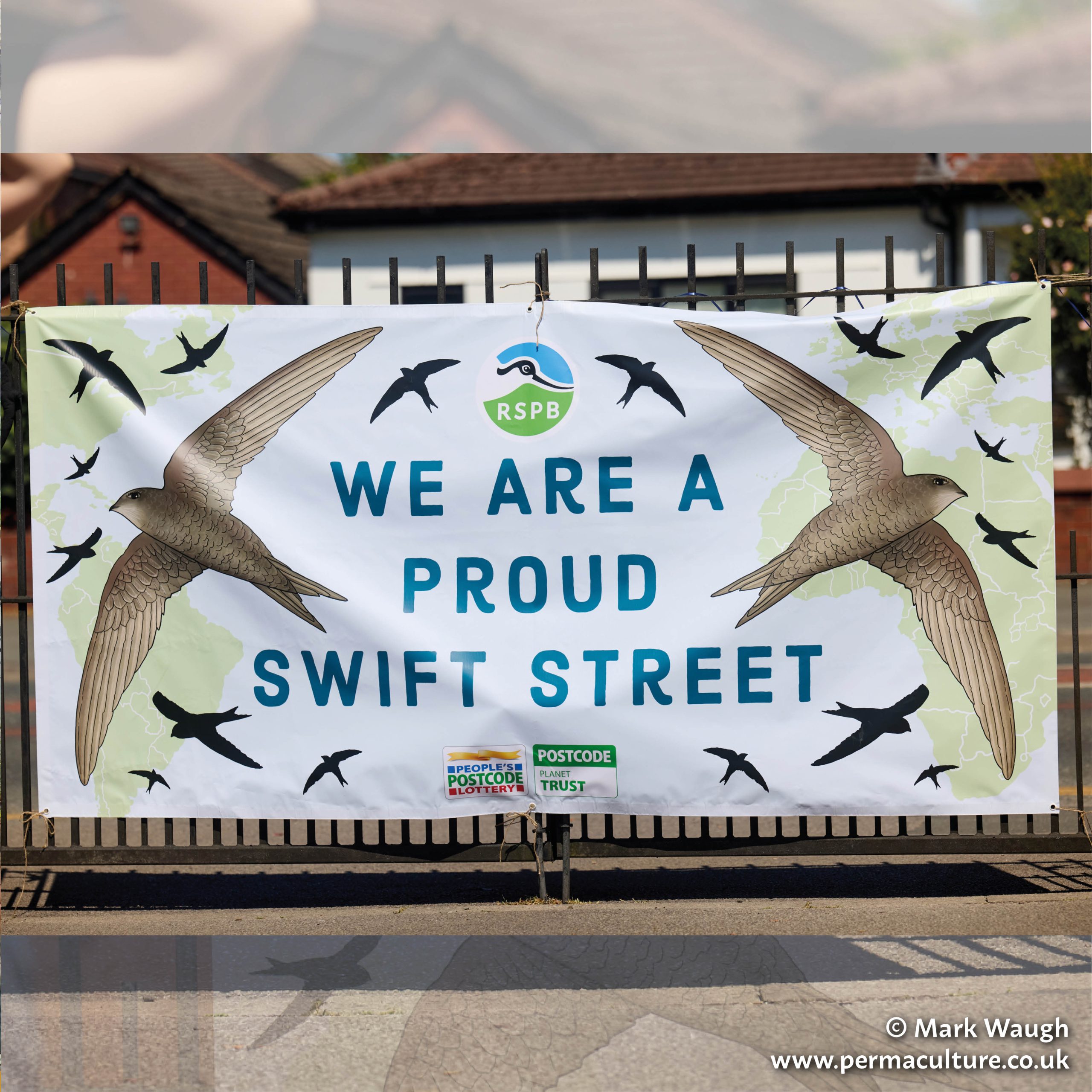Applications for the Permaculture Magazine Award 2025 are now closed.
The Permaculture Magazine Award specifically supports permaculture projects that reach ordinary people and demonstrate best practice permaculture both in terms of ecological and socially / culturally innovative design. Any project can apply if it has been functioning for at least three years and has established its place within its community. Now in its sixth cycle, the 2025 award has a fund of £25,000 to give.
We are delighted to be in collaboration with the Lush Spring Prize for a second cycle. This enables the Permaculture Magazine Award to reach a much wider audience, allowing many more permaculture projects and individuals to apply and be celebrated.
It also offers award recipients and applicants the opportunity to connect with Re-alliance and Re-generosity networks, opening up more funding options and creating valuable relationships with other people and projects.
To date, the Permaculture Magazine Award has shared £130,000 between 24 worldwide permaculture projects.
Applications are open from 5th August. Application forms are available via the Lush Spring Prize website (HERE) and entries close at 10.00 BST Friday 27 September 2024. Applicants will need to apply to one of the Spring Prize categories (Young Award 1-5 years old or Established Award 5+ years old) and then select ‘Permaculture Magazine Award’ in question seven: ‘Would you like your application to also be considered for an Influence Award or one of the following 2025 collaborative prizes.’ Awardees will be notified early 2025, with a prize giving ceremony in May 2025 thanks to Lush Spring Prize and Ethical Consumer.
“Winning the Permaculture Magazine Award has been a transformative experience for Sol Haven, prompting us to view our work in a broader context. The award forced us to step back and consider our impact beyond our immediate community. Being recognised on an international stage made us realise that our efforts resonate globally. It encouraged us to think beyond our local boundaries and envision a more interconnected world where our work matters. The award has opened doors to new collaborations and partnerships. We’ve connected with like-minded organisations, shared best practices, and learned from diverse perspectives. This network extends beyond borders, enriching our work and inspiring us to dream bigger.” Sammuel Yisrael, cofounder of Sol Haven, 2023 Permaculture Magazine Award recipient.
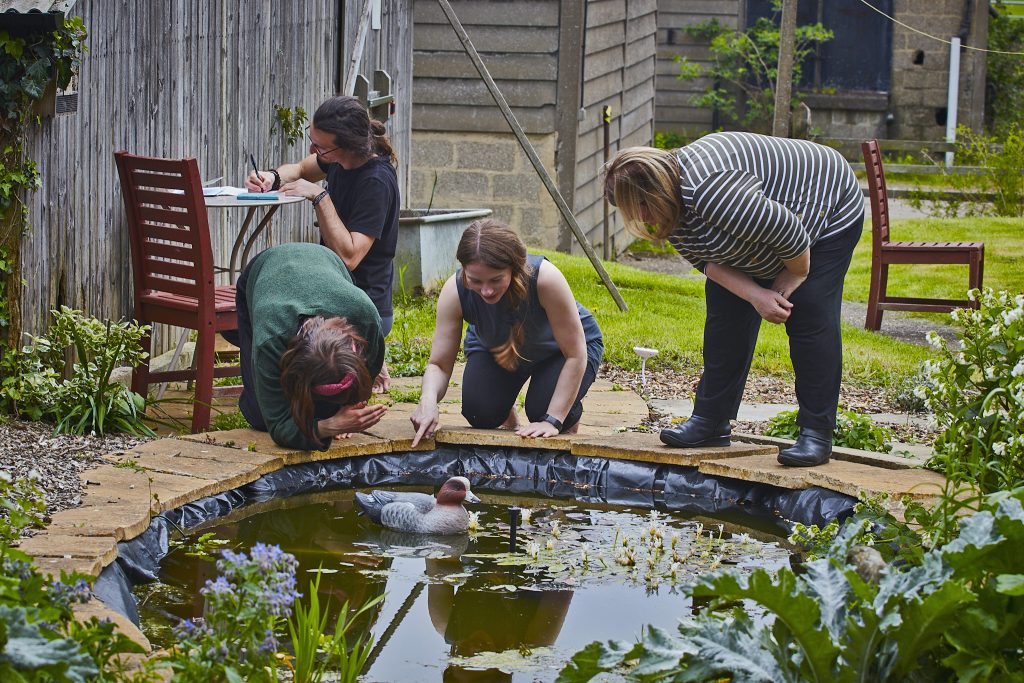
© Sol Haven
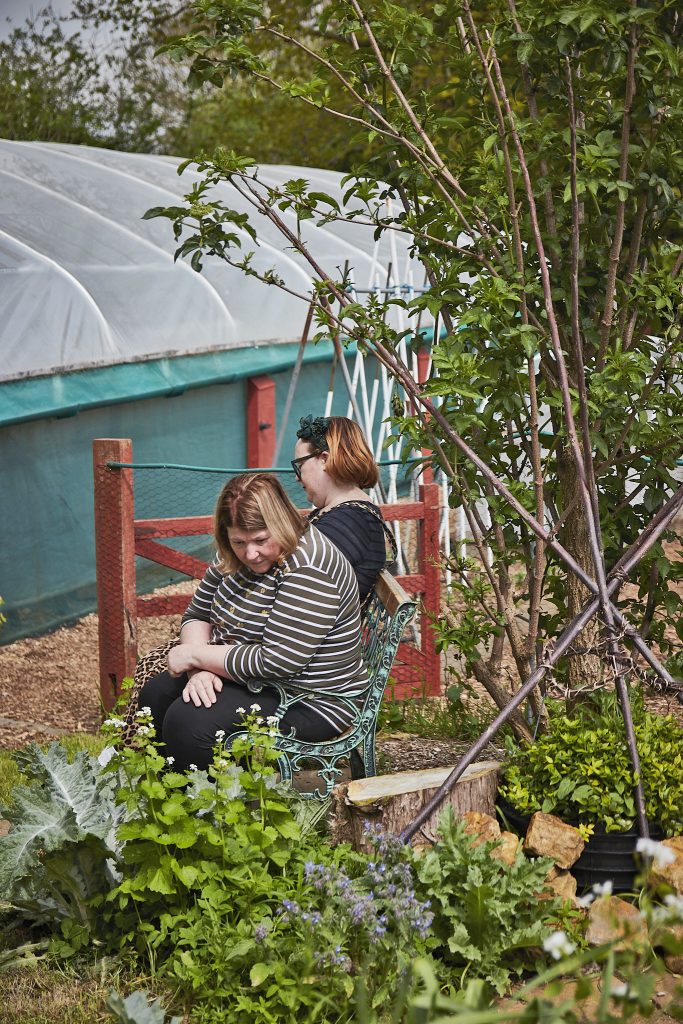
© Sol Haven
“In the past few years, Northern Youth Project has been able to follow through with the food forest. We spent a whole summer focusing on digging swales and planting trees and wild plants mentored by Beata Tsosie Peña, who taught from a lens of indigenous traditional knowledge. Now we are harvesting fruits and berries! The youth have learned about tree care as well as about native plants and medicinal herbs, and how they all work together in a symbiotic relationship, creating a healthy ecosystem.”
“This year we celebrate 15 years of providing free arts, agriculture, and internship opportunities for youth in rural northern New Mexico! Our food forest will continue to provide food for our youth, pollinators, and wild critters that enjoy the beauty of our garden. Our investment in perennial plants and healthy soil is a legacy that will continue to sustain life and love in the center of our community for years to come.” Lupita Salazar, cofounder of Northern Youth Project and 2019 Permaculture Magazine Award recipient.
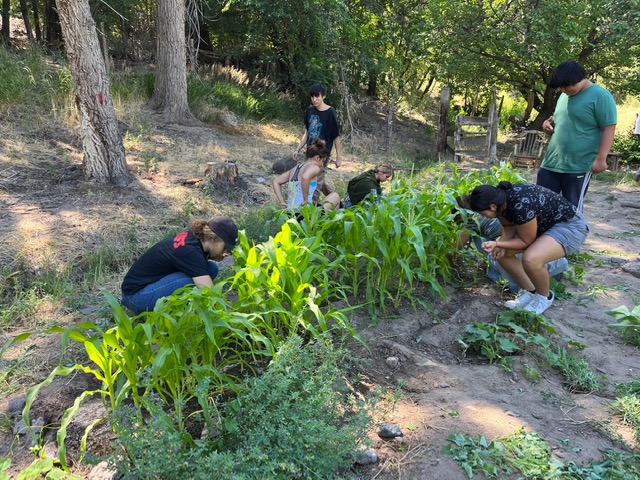
Youth interns Chantal Bibeault, Alyssa Cervantes, Aden Allman, Tatiana Maestas, Jovana Blea, Lexi Gould, and Mathew Blea tend to our acequia fed three sisters garden. © Northern Youth Project
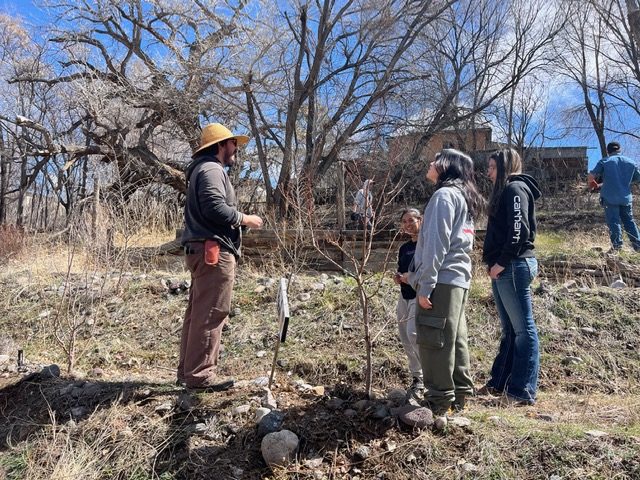
Arborist mentor Emilio Borrego teaches about spring tree care to Hannah Martinez, Jovanna Blea, and Alana Fresquez. © Northern Youth Project
Our panel of prestigious judges come from a range of backgrounds and work tirelessly to shortlist projects to be awarded. The judges for 2025 include (more TBC):
Morag Gamble is an award-winning global permaculture educator, ambassador, speaker, YouTuber, podcaster, writer, mentor, and trust-based philanthropist.
Maia Gamble is the co-founder and coordinator of Permayouth and lives at Crystal Waters Ecovillage in Australia with her family.
Maria Paez is the International Coordinator at the Permaculture Association Britain (PAB), where she connects with global permaculture leaders to understand their needs and aspirations.
Kayode Olafimihan is the chair of the London Permaculture Network and organises the annual London Permaculture Festival.
Andrew Zionts Abrams is a Permaculturist, designer, entrepreneur, teacher, facilitator and philanthropist and perhaps most importantly, an earth steward.
Rozie Apps is the Assistant Editor at Permaculture magazine and Permanent Publications. She was also a judge for the the 2023 Award and for the Lush Spring Prize.
The Lush Spring Prize is a biennial £200,000+ prize open to communities, organisations and businesses from the Intentional stage, through to Young and Established organisations, and Influencers. The fund supports incredible projects all across the world, while bringing people together to share their skills and experiences. The Prize also aims to raise awareness of regeneration and its potential to heal damaged systems, create resilience to crises, and grow abundance. The prize is made up of four categories:
The 2025 Lush Spring Prize will award at least nine prizes across three different Spring Prize categories.
Intentional Award: Four prizes – For great new ideas and projects up to 1 year old, to help build knowledge and a solid foundation from which to grow.
Young Award: Three prizes – For projects or organisations that are 1-5 years old, to help develop their environmental and social regeneration work.
Established Award: Two prizes – For organisations that have worked towards regeneration for 5+ years, to help share knowledge and inspire more people and ideas.
Influence Award – For 2025, The Influence Award will be allocated in a different way. At least £25,000 will be distributed by judges to projects shortlisted in other categories – to highlight and support influential work.
The Influence Award is for organisations and networks of any size that are campaigning or lobbying to influence policy, regulation or public opinion in support of regeneration.
Due to our collaboration, the Permaculture Magazine Award application process is through the Lush Spring Prize website. To apply for the Permaculture Magazine Award, you will need to apply to one of the Spring Prize categories (Young Award 1-5 years old or Established Award 5+ years old) and then select ‘Permaculture Magazine Award’ in question seven: ‘Would you like your application to also be considered for an Influence Award or one of the following 2025 collaborative prizes.” No additional application is required. This means you/your project are applying for two awards at once. And because the Influence Award will be decided by the judges, you may also be considered for this too. If your project is under 3 years old, you can apply for the Lush Spring Prize, either Young Award or Intentional Award.
Alternatively you may feel your project is more suited to the Indigenous Knowledge & Wisdom Award, which is sponsored by Be The Earth Foundation and The Savitri Trust. More details on this award can be found HERE.
For details on previous permaculture project recipients, visit: www.permaculture.co.uk/permaculture-award
